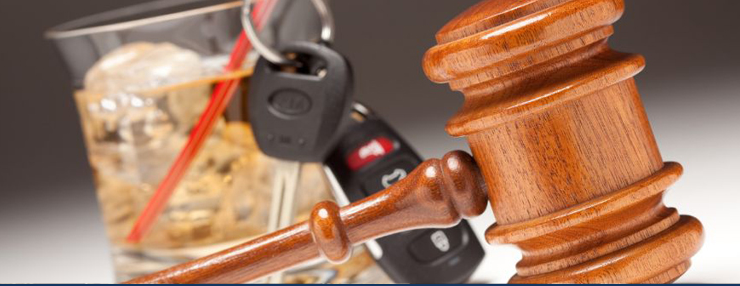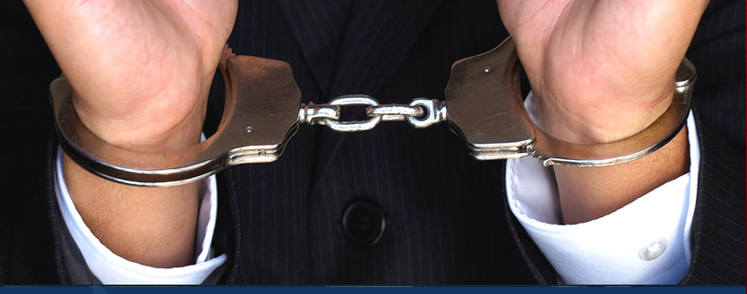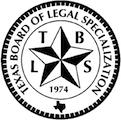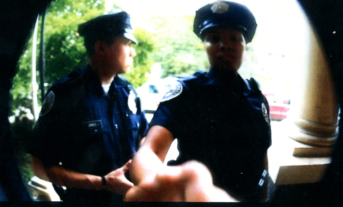WHAT STEPS SHOULD BE TAKEN FOLLOWING AN ARREST FOR DWI?
Even if you follow the advice given by our office for what to do if pulled over and suspected of Driving While Intoxicated, it does not mean you will not then find yourself in jail and under arrest. If you followed the outline previously on how best to handle the investigation of the incident, you likely have put yourself in the best position possible to later contest your charge in court.
After you are arrested handcuffed, you will be taken to the jail and booked in. It is critical to understand that at this juncture of a DWI arrest, you now have the absolute right to remain silent, and you also have the right to an attorney. Contacting an attorney should be your first priority
if you are arrested for DWI.
STEP ONE: KEEP COOL AND CALM
At the point where you know you will be arrested, it is natural to harbor a host of negative emotions and feelings at the situation. It is also understandable to be very mad and frustrated at the arresting officer for the role he played in the incident. However, it cannot be stated enough to remain calm and cool throughout the procedure, from start to finish. Remember, everything is being recorded, including everything that happens subsequent to the investigation for DWI. Even if not recorded, any unusual or rude behavior directed at the officer will be noted in his arrest report, and surely something that he testifies to later at trial. At this point, invoke your right to remain silent, and wait for a bond amount to be posted to secure your release from jail.
STEP TWO: BOND OUT
At some point, you will be brought before a magistrate to have the charges read and explained to you, if necessary. This process is known as the arraignment. While you are allowed to have a lawyer present for the arraignment process, it isn’t necessary. If the magistrate offers you an opportunity to enter into a plea, make it clear that you are requesting an attorney and wish to consult with them before any futher decisions are made. A bail amount will then usually be set, which is usually based on a variety of factors. Once bail is set, it is highly advisable to then secure your release from jail by posting a bond.
STEP THREE: RESEARCH ATTORNEYS
After you have secured your release from jail, take a few days to relax and try to alleviate any tension that may have been built given this situation. The next step, once you have mentally processed what has occurred, is to search for an experienced, trained, and knowledge DWI Defense Attorney that is best suited for the facts of your case.
A properly skilled and trained DWI Defense Attorney is one who will listen to you, understand your case, and do their very best to help assist you in court and all the proceedings ahead. It is essential to research various DWI Defense Attorneys in order to choose the one that is best suited for your specific case. To help with your search, it is always a good idea to ask trustworthy friends and/or family members for their suggestions and recommendations on who to, or who to not, hire!
In a process such as this, you would want a that is familiar with a case such as yours, has experience in the area where the matter will be handled and has done extensive training to the specific nuances of the DWI Defense field.
Some possible questions to ask a potential attorney may include:
- Are you Board Certified in Criminal Law?
- How many DWI jury trials have you tried in your career?
- Will you be the one primarily handling my case?
- Have you ever tried a breath or blood test case with success previously?
- What training have you completed specific to DWI Defense?
STEP FOUR: REQUEST AN ALR
In Texas, when you’re arrested for a charge of DWI, the arresting officer typically confiscates your Texas Driver’s License and issues you a “Temporary Driving Permit” (DIC-25) if you either refused to allow a chemical specimen to be obtained, or any result that was obtained was above a .08.
However, you have the right to fight the suspension of your license. This process is called an Administrative License Revocation Hearing. You have 15 days from the date of “Notice Served” which is most often the date of your arrest. In Texas, the penalty for refusing a blood or breath test for your first DWI arrest
could be a 180-day suspension of your driver’s license. Taking and failing the breath or blood test could result in
a 90-day license suspension. If your DWI case was one deemed where consent was given, DPS will wait before a “BAC” is obtained to determine whether they will proceed with a possible suspension of the driver’s license.
Regardless, ALR hearings as a general rule should be scheduled and prepared for. Many police officers fail to appear at these hearings after being properly subpoenaed, and therefore clients never
lose their privilege to drive. Very often, we may be able to save your privilege to drive if we have success at the ALR hearing.
STEP FIVE: OBTAIN A NEW DRIVER’S LICENSE
If an individual’s driver’s license is confiscated following an arrest that was deemed a refusal, a “Temporary Driving Permit” (DIC-25) should have been given among the paperwork given upon release from jail. If this is the situation, the ALR hearing should be requested within 15 days. However, if done promptly following an arrest for DWI, one can go to a DPS substation and request another driver’s license if they report it as lost (technically it was!). They will then mail them a new one, and having this going forward in the process can be very helpful when doing activities that require official identification (renting a vehicle on trips, using a credit card, etc.).
STEP SIX: GATHER EVIDENCE (RECEIPTS, INTOXICATION WITNESSES, DOCUMENT ANY MEDICAL CONDITION, WRITE NARRATIVE)
After one has chosen a suitable attorney, requested the ALR Hearing, and possibly order a copy of another driver’s license in the mail – the next step is to gather as much evidence as possible related to the incident, while your memory is still fresh. One of the first (and perhaps easiest) things that can be done is obtaining a receipt for any alcoholic beverages consumed on the night in question. If the document is favorable to the defense, it could possibly be used later in trial.
In addition, one could start gathering possible intoxication witnesses, which would be individuals who were with the person the day/night of the incident, and could possibly verify and/or testify accounting for relevant details. They could possibly be used as witnesses to corroborate the story of the Defendant.
It also may be helpful to document any possible medical condition an individual may have that could have contributed to a symptom otherwise attributed to intoxication. For instance, if a person has had extensive knee surgery in the past, it would likely seriously hinder their ability to be able to conduct the SFST’s. If this is the case, it would be helpful to gather any medical documents pertaining to such a condition and prepare them to file well in advance of trial in order to be used as a pertinent piece of evidence.
Lastly, I think it is important for an individual to sit down and think back on the incident, trying to recall any and all relevant details. It sometimes is painful for someone to recall such an event, but it can be vital doing so close after the event while the memory is fresh. The reality is sometimes DWI cases can take months, and even years to dispose of. Trying to recall specific details and events of something that occurred in the distant past can prove difficult. As such, a hazy memory can possibly be attributed by a Judge or Jury (assuming the Defendant testifies) to them being intoxicated on the night in question (and thus, is the reason they are unable to recall different instances).
Conclusion
The best way to avoid an arrest for DWI and having to deal with the subsequent aftermath is to avoid drinking and driving altogether. When you know you will be consuming an alcoholic beverage, use an Uber or a Taxi for transportation. However, the reality is this situation happens to many individuals in Texas. DWI charges are not particularly fun to have to deal with, but they are definitely not insurmountable.
- There are three very important factors in trying to achieve the best success possible given the facts of your case:
- Refusing All Roadside SFST Tests (Both the SFST’s and any chemical test);
- Refusing All Chemical Tests; And
- Hiring the Right Attorney
By this point, you should be well versed in knowing what to do during any possible aspect of DWI case. This information is provided free and as a courtesy by Texas DWI Defense Attorney Carl David Ceder. For additional information, please visit our website at www.TexasDWIDefender.com, or by calling 214.702.CARL(2275).






















